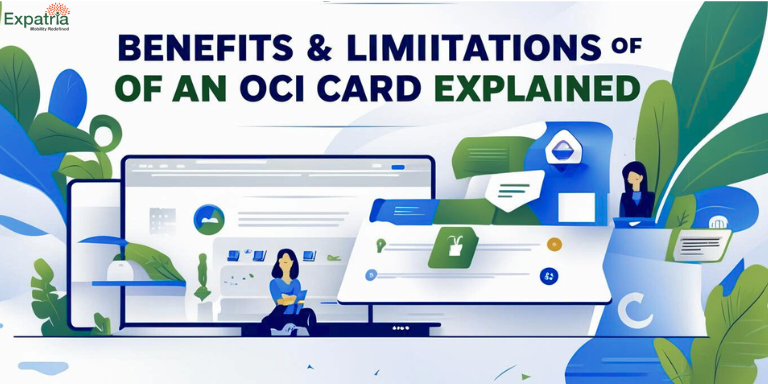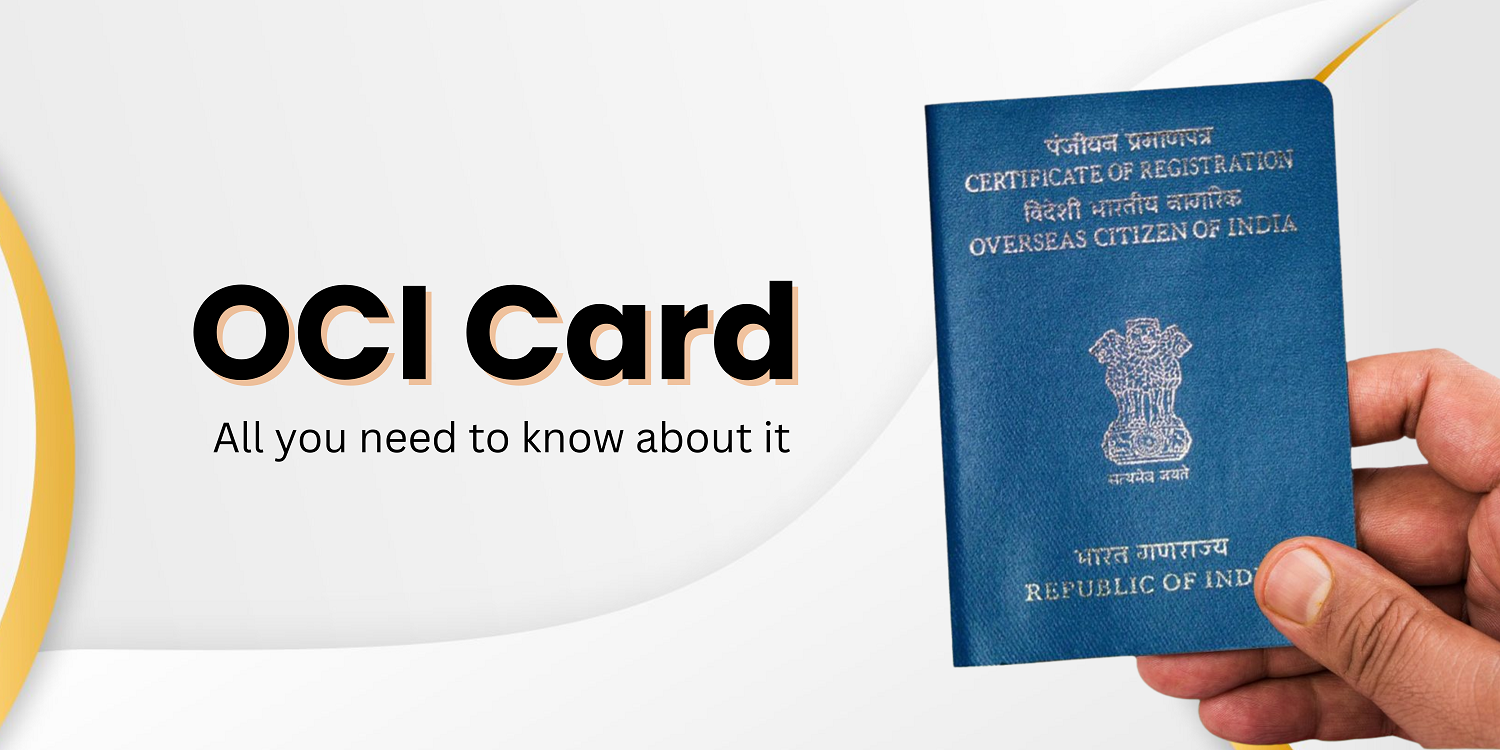If you are an Overseas Citizen of India (OCI) cardholder or planning to apply, it’s important to understand not just what an OCI is, but also the advantages, restrictions, and the latest government rules. Many people confuse OCI with dual citizenship, but in reality, India does not allow dual nationality. Instead, the OCI card acts as a lifelong visa that offers multiple benefits, while still keeping certain differences from full Indian citizenship.
What is an OCI Card?
An OCI Card (Overseas Citizen of India Card) is essentially a multi-entry, lifelong visa that allows foreign nationals of Indian origin to travel, work, or reside in India without repeatedly applying for a visa.

Restrictions & Limitations of an OCI Card
An OCI Card does not grant you the full rights of an Indian citizen. Here’s what you cannot do as an OCI holder:
No voting rights in Indian elections.
Cannot become a Member of Parliament, Legislative Assembly, or hold constitutional government posts.
Ineligible for agricultural land ownership (restrictions apply under property laws).
Government reserves the right to cancel OCI status under security or legal violations.
Therefore, OCI is best understood as “extended residency privilege” — not citizenship.
Latest Government Updates (2025 Rules)
The Indian government has simplified OCI card re-issuance rules:
- Re-issue is now required only once after turning 20 years old (instead of multiple times earlier).
- If you obtained OCI after the age of 20, then no re-issuance is required for life.
- Minor children applying on a parent’s basis need additional documents, such as proof of Indian origin.
This move brings major relief for families abroad, reducing paperwork and renewal hassles.
Who is Eligible for an OCI Card?
You may qualify for an OCI Card if:
- You were an Indian citizen at any point after Jan 26, 1950.
- Your parents, grandparents, or great-grandparents were Indian citizens.
- You are married to an Indian citizen or an existing OCI holder, provided the marriage has lasted at least two years.

How to Apply for an OCI Card?
The application can be submitted online at the official OCI portal. The process involves:
- Filling out the OCI registration form.
- Uploading proof of Indian origin (passport, birth certificate, etc.).
- Submitting biometric data at the Indian embassy or FRRO.
- Tracking your application status online.
Processing generally takes 8–10 weeks, depending on correctness and completeness of your documents.
Final Thoughts: Is an OCI Card Right for You?
If you plan frequent visits to India for family reasons, business, or long-term living, then an OCI card gives unmatched convenience. However, remember that it does not replace full Indian citizenship — it is more of a privilege-based residency status.
In short:




To ensure smooth processing and avoid any delays, you may also seek assistance from Expatria experts, who offer complete support throughout the filing procedure. For further information or queries, you can reach us at enquiry@expatria.in or call us on +91-95991-98950.
OCI Card – All you need to know about it



